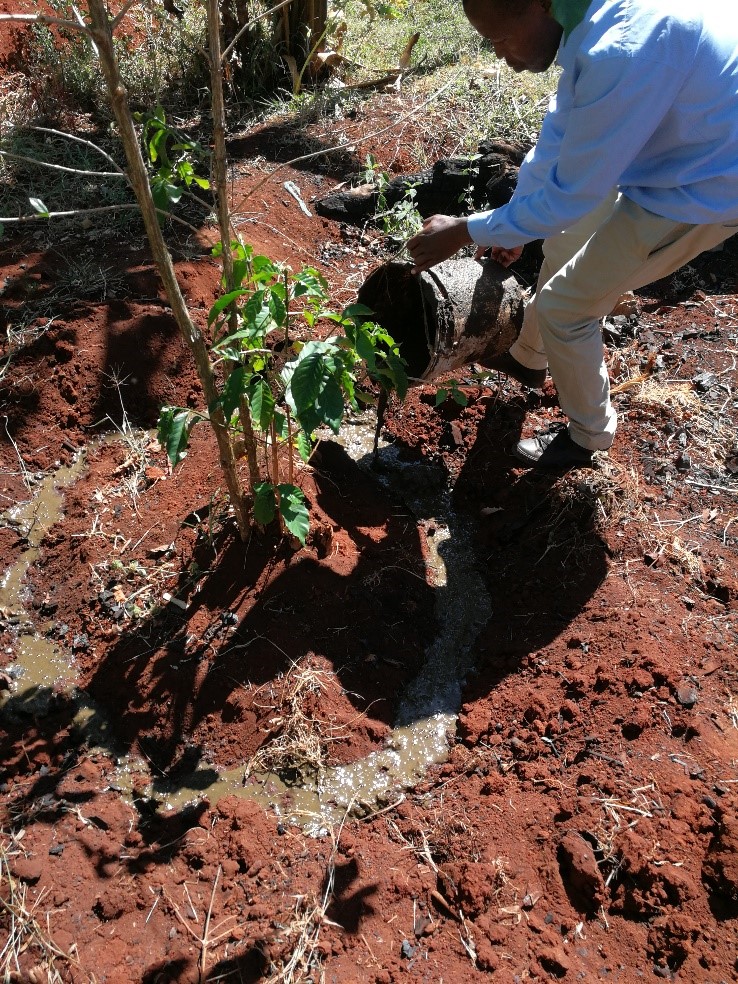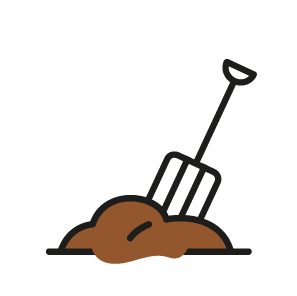
Organic Fertiliser Valorisation Implementer
Soil health challenges
As soil organic matter levels drop, the soil’s ‘sponge’ capacity to absorb and retain water decreases. Consequently, topsoil becomes prone to runoff and erosion, which leads to nutrient losses and – worse – the soil becomes even more vulnerable to floods and droughts.
Climate change accelerates soil degradation. Add to this rising food and fertiliser prices, and you have a strong case for bio-slurry: a unique source of nutrients and organic matter produced by biodigesters.
OFVI objective and outcomes
The African Biodigester Component (ABC) is funded by the Netherlands and the Danish development cooperation. Its projects in Burkina Faso, Kenya, Mali, Niger and Uganda strengthen the biodigester value chain, valorising biogas for cooking, and this project: Organic Fertiliser Valorisation Implementer (OVFI), valorising bio-slurry.
OFVI’s objective is to increase the use and valorisation of organic fertiliser among existing and future biodigester owners, to improve business cases for investing in biodigesters, and thereby sustain demand for and use of biodigesters in the target markets.
The project aims to contribute to:
- better insight into organic fertiliser use among biodigester owners, and barriers to using organic fertiliser
- understanding which crops and cropping systems benefit most from bio-slurry and bio-slurry enriched compost (BEC)
- training biodigester enterprises, public extension officers and others on the production and use of bio-slurry and BEC
- an enabling environment, boosting local compost markets by supporting awareness raising and farmers’ experience sharing, promoting credit access, policy for soil health and use of organic fertiliser, and standardisation of compost.
OFVI consortium
The OFVI consortium consists of Biomass Research (lead), DIBcoop and SNV, all based in the Netherlands, in close cooperation with selected National Partners (NPs) in the five countries. OFVI collaborates with other projects in the ABC programme.
Vision on market development
In OFVI’s implementation, National Partners in Burkina Faso, Mali, Niger, Kenya and Uganda play a key role.
For bio-slurry market development OFVI will:
- motivate smallholder biodigester owners to make full use of the bio-slurry potential to harness soil production capacity; both female and male smallholders will benefit
- promote the trade of surplus bio-slurry or BEC, helping sellers, traders and users in the development of products of reliable quality and nutrient content
- assist bio-input suppliers and other private-sector partners to promote compost use, to drive up the demand for bio-slurry and create local markets for BEC
- build up knowledge on bio-slurry / BEC use, its effects on soils and crops, and how to get the best yield response
- assist compost sellers to develop more targeted marketing for different cropping systems, including off-season use for vegetable growing, kitchen gardens; this will create more steady, year-round demand, better matching bio-slurry supply
- promote measures to increase bio-slurry and BEC supply
- promote favourable policies and standards for BEC and the use of BEC.
